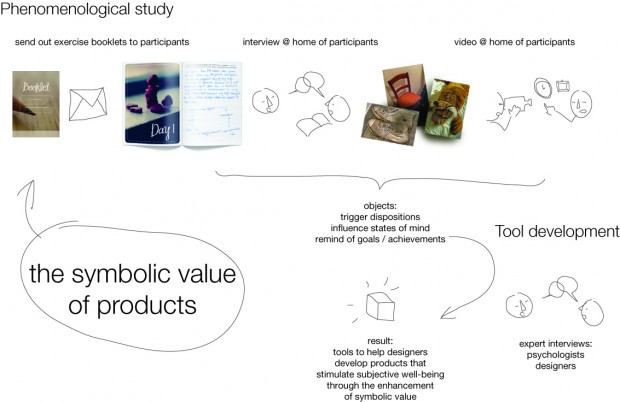The study of happiness is one of the pillars of positive psychology and it is characterized by a sense of satisfaction of life, together with the experience of positive affect states over negative ones. In order to reach happiness, intentional behaviour (e.g. activities) can have a very determining role – accounting for 40 per cent of the attainment of subjective well-being – which implies the importance of motivation in reaching happiness. Product design can have a part in creating motivation through the ability that products have to be vessels of significance. Objects can symbolize our goals, aspirations, they can remind us and motivate us to pursue them, and they can represent the achievements we already accomplished – again motivating us to do even more. Despite the fact that the literature on happiness claims that material possessions account for a very small part of its attainment, we argue that through their ability to hold symbolic value, products are able to contribute to subjective well-being, by influencing the users’ disposition and motivation – making them want to be better, to do more things, to challenge themselves, ultimately stimulating their own flourishing.
We began by exploring the symbolic value in products through a phenomenological study, with the goal of obtaining first-person descriptions of individual experiences with household objects, and the interpretations of how these relate or reflect on disposition, motivation, and drive.
Along with input from experts in the fields of design and psychology, the knowledge gathered in the exploratory phase is then applied in the development of strategies for designers – to create tangible products capable of inducing or stimulating positive dispositions, which will contribute to subjective well-being. Following the development of the tools for designers, product iterations are developed, and later working prototypes, to be tested in a user group. This will result in the assessment of the extent to which it is possible to (intentionally) design meaning in products, so that they are capable of influencing user’s motivation (their will to change, be better, do more, challenge themselves, etc.).




